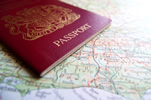Top tricks for saving money during your reassignment

Top tricks for saving money during your reassignment
No two countries’ currencies are identical – with the exception of the 17 EU member states who all use the euro – and getting used to a new monetary reality isn’t helped by translating every purchase into your home country’s currency although it’s a useful tool whilst you’re getting used to your new way of life. In the end, saving money is only possible by relating the currency in your pocket to the items you’re thinking of buying.
Understanding the local currency is essential, although it’s tricky during your first few months overseas, especially since there’s a strong temptation to buy almost everything you see. Items, foodstuffs, utility bills and meals out may seem cheap in the local currency or when related to your salary, but may not actually be so when transferred to your home country’s currency. The first trick is to become familiar with the average exchange rate, using a calculator if mental arithmetic wasn’t your best subject at school. Many expats don’t get beyond this stage, so never get to grips with real costs in their new country.
Lifestyle changes are also essential, especially if you’re determined to save money during your relocation. For example, online shopping may not be available or be unreliable, and conventional shopping involves local markets where no-one speaks your lingo and you’re unfamiliar with some of the produce on sale. Learning basic numerals in the local language helps, and isn’t difficult once you’re motivated by the considerable reduction in costs of the basics for a delicious meal. Exploring the local cuisine is fun, particularly if you’ve remembered to pack your ‘idiot’s guide’ to cooking in your new country. Remembering local cuisines are strongly linked to local culture is another incentive.
Using public transport to get around or into work is an economical way to travel, but for expats who can’t read bus or train stops in the new language it can also mean getting lost on a regular basis. Car-sharing with other expats in the same situation is one way out, with four in a car often saving over the cost of four separate fares. Everyday tasks as well as renovation and renewals provide another money-saving incentive, even if you’ve two left thumbs and no experience with a hammer and nails. The internet is your friend as regards the how-to –do of a million home-based tasks, and you may even enjoy the challenge. It’s the same with cleaning, washing, ironing and all the other household jobs you love to hate, but the thought of saving the costs of a handyman and maid can compensate.
Related Stories:
- Is Kuwaitization the unintended result of the oil price crash? - July 20, 2020
- Expats in Malaysia still banned from overseas travel - July 17, 2020
- HSBC Asia to cut back on internal expat relocations - July 16, 2020
- Tips on integrating for newly-arrived expats - July 15, 2020
Latest News:
- Tips on a trouble-free relocation as an expat overseas - July 20, 2020
- Expats find peace in the covid-19 refuge of Dahab town - July 20, 2020
- Is Kuwaitization the unintended result of the oil price crash? - July 20, 2020
- Expats unhappy abut changes to Korean points-based visa system - July 17, 2020
- Chiang Mai and Bangkok no longer bargain locations for expats - July 17, 2020
- Expats in Malaysia still banned from overseas travel - July 17, 2020
- Vietnam welcomes expats to its safe, affordable lifestyle - July 16, 2020
- Asian tiger economies reach out to expats in Hong Kong - July 16, 2020
- HSBC Asia to cut back on internal expat relocations - July 16, 2020
- Tips on integrating for newly-arrived expats - July 15, 2020


